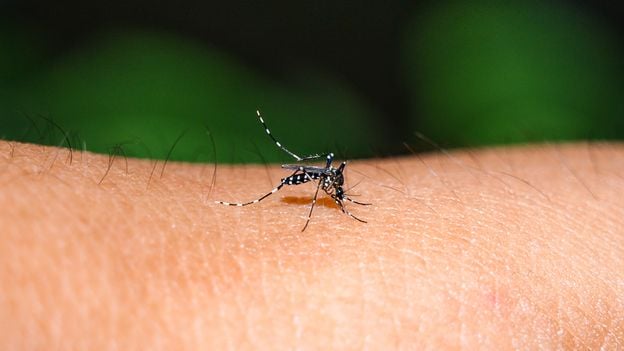West Nile virus, Eastern equine encephalitis (EEE), malaria and dengue are gaining new ground in the US. The mosquitoes that carry these diseases are thriving in a warming world.
Since the turn of the century, New York City has experienced 490 cases of West Nile viral fever according to the city’s health department, a disease spread by infected mosquitoes. One of the most high-profile recent cases was Anthony Fauci, chief medical advisor to the US president from 2021-22.
Once rarely seen outside of East Africa and parts of the Middle East, West Nile virus is establishing an increasing hold in New York and more broadly across the US. In 2023, the virus was detected in more than 1,100 mosquito pools, mostly in Queens. To date in 2024, cases of West Nile fever have been detected in 39 states. An estimated 70-80% of West Nile infections are very slight or entirely asymptomatic, but severe infections can lead to permanent neurological complications.
An even more concerning trend is the rise of Eastern equine encephalitis (EEE), another mosquito-borne virus which is far more dangerous, with a reported 30% fatality rate. EEE was first identified as a public health threat back in 1938, but over the past 20 years, sporadic outbreaks in the north-east of the US have reoccurred with increasing frequency, with cases appearing steadily further north.



Mosquitoes infect and kill off other animal species too. In Hawaii for example, we learned the native birds have this narrow elevation range where they can live safe from mosquitoes. But of course, mosquitoes are creeping higher in elevation as temperatures continue to rise.